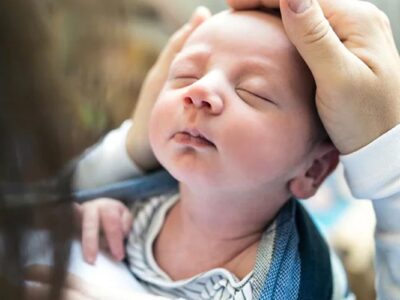How does COVID-19 affect Pregnancy? “The Risk is Higher than we thought”
Getting COVID-19 during pregnancy is more dangerous for women and their newborn babies. Scientists emphasize they need special protection against SARS-CoV-2 during pregnancy period.
The risk of complications for COVID-19 infected mothers and newborns is higher than we thought at the start of the pandemic, says Dr. Stephen Kennedy of the University of Oxford, who is one of the authors of a study to investigate how SARS -CoV-2 infection affects pregnancy outcomes.
A cohort study called INTERCOVID was conducted from March to October 2020. They were attended by 2,130 pregnant women, including 706 diagnosed with COVID-19 infection. The observations were conducted in 43 hospitals in 18 low, middle and high-income countries.
Women became infected at various stages of pregnancy and were enrolled in the study immediately. The condition of women and newborns was monitored until discharge from the hospital. The average age of the participants was 30 years. A summary of the research was published in the journal JAMA Pediatrics.
This study was unique not only because it covered pregnant women from different countries and regions, but also because each pregnant woman affected by COVID-19 was compared with two uninfected women who gave birth at the same time and in the same hospital.
COVID-19 in Pregnancy increases the risk of complications in the mother and newborn
COVID-19 during pregnancy has been associated with a steady and significant increase in the severity of the disease. There was an increase in maternal mortality and health complications in newborns, compared to pregnant women who did not get infected, the scientists write in the conclusions from the observation.
Women going through COVID-19 during pregnancy were averaged over 50 percent. more prone to complications such as premature birth, pre-eclampsia, the need for hospitalization and intensive care, and death, compared to uninfected pregnant women.
The risk of dying in pregnancy and in the postpartum period is 22 times higher in women with COVID-19 than in uninfected women, said Aris Papageorghiou, professor of fetal medicine at the University of Oxford. But it is reassuring that, as we noted, asymptomatic women with COVID-19 infection had results similar to uninfected women, with the exception of the risk of developing preeclampsia.
COVID-19 in the mother also threatens the baby.
Newborns whose mothers became infected during pregnancy were almost three times more likely to experience serious health complications requiring admission to the intensive care unit (mainly due to premature birth). In addition, almost 13 percent. newborns born to sick mothers contracted the coronavirus within a few days after birth.
Breastfeeding does not appear to be associated with this increase in morbidity. In contrast, delivery by cesarean section increases the risk of a newborn becoming infected, says Jose Villar, a professor of perinatal medicine at the University of Oxford, who was one of the scientists managing the INTERCOVID study.
Experts point out that this study clearly shows How important it is to prevent COVID-19 infection during pregnancy. – We must do everything in our hands to prevent the pregnant woman from COVID. It is also a strong case for ensuring that all pregnant women are vaccinated, the researchers conclude.
Sources: ScienceAlert.com , University of Oxford, Science , JAMA Pediatrics






